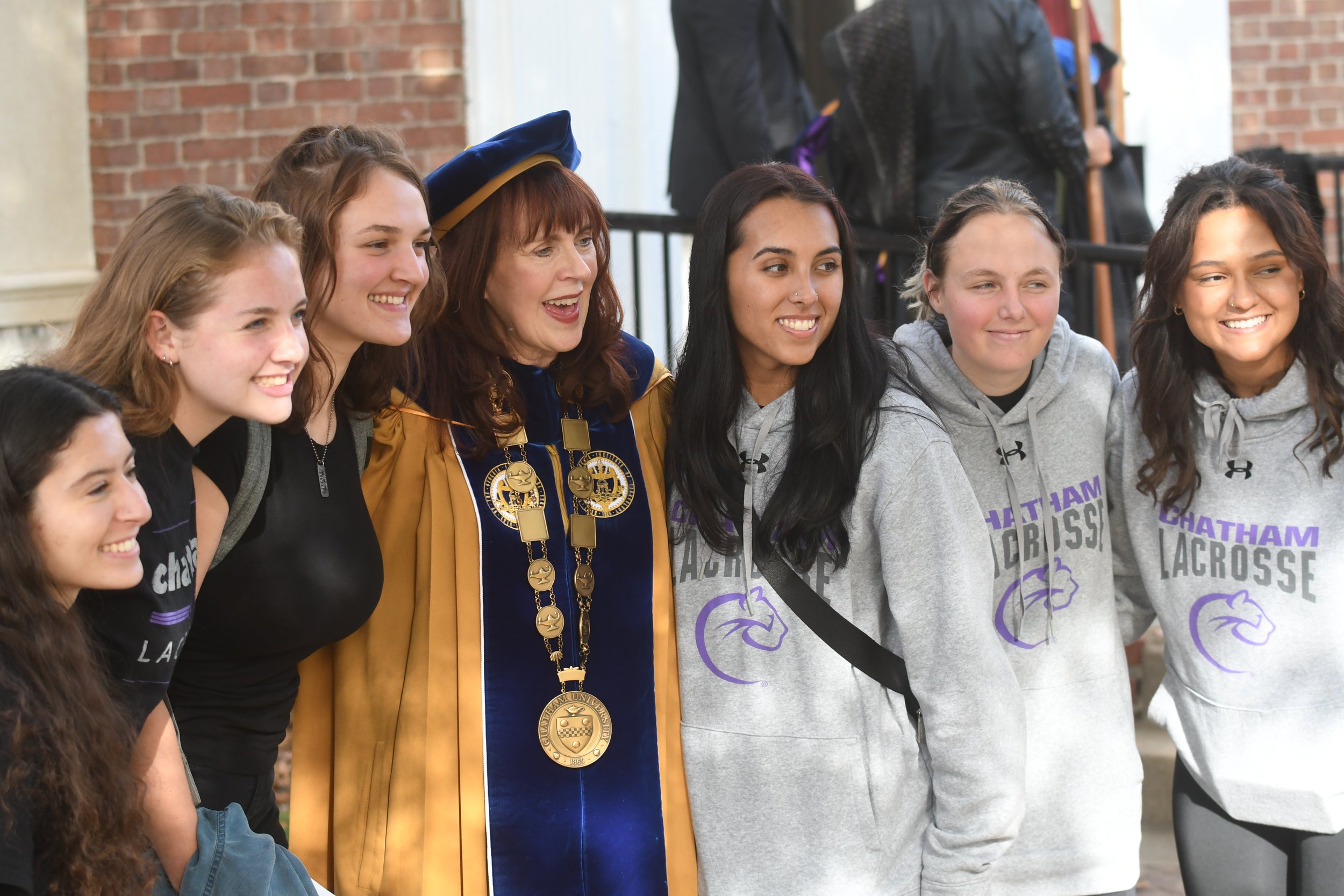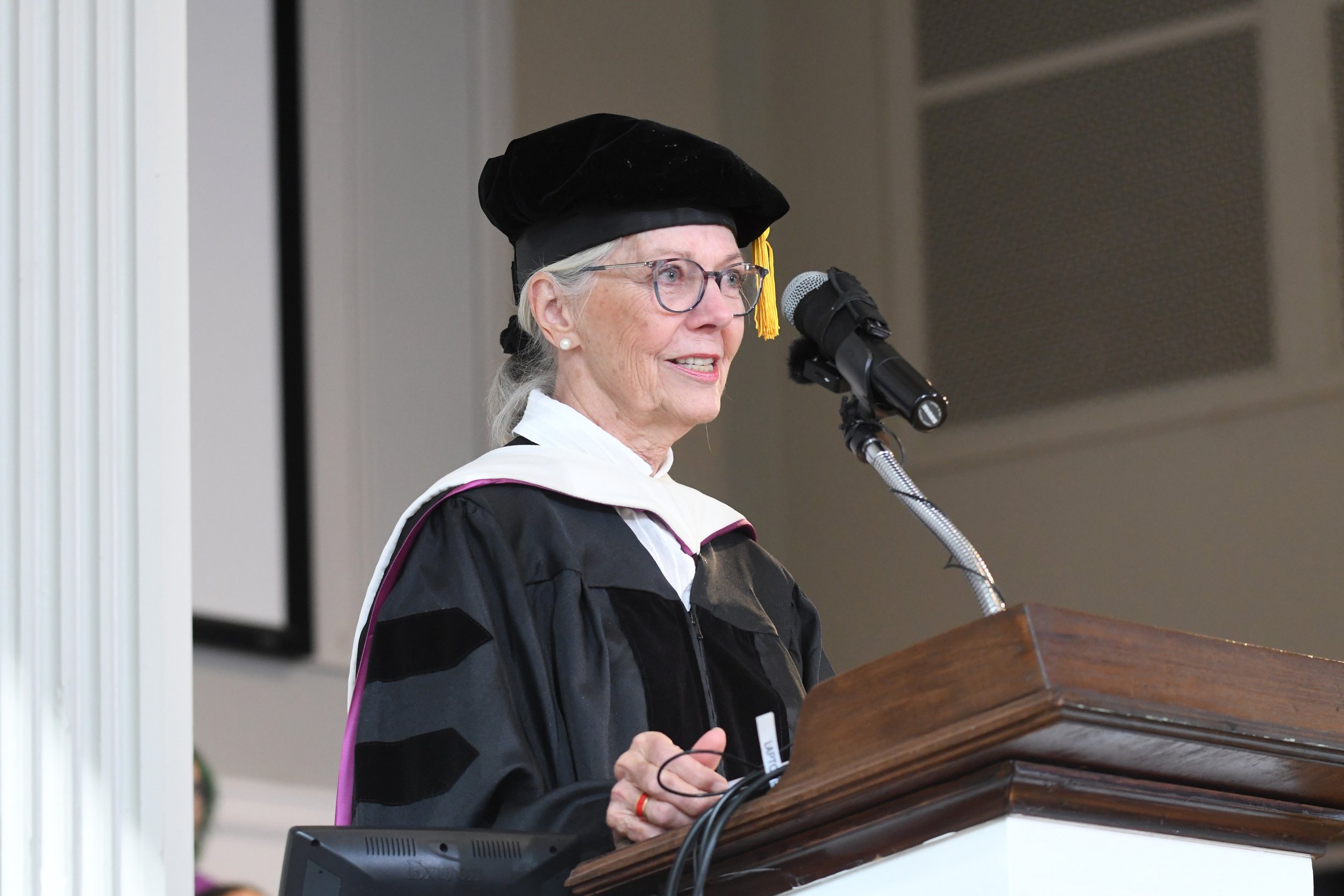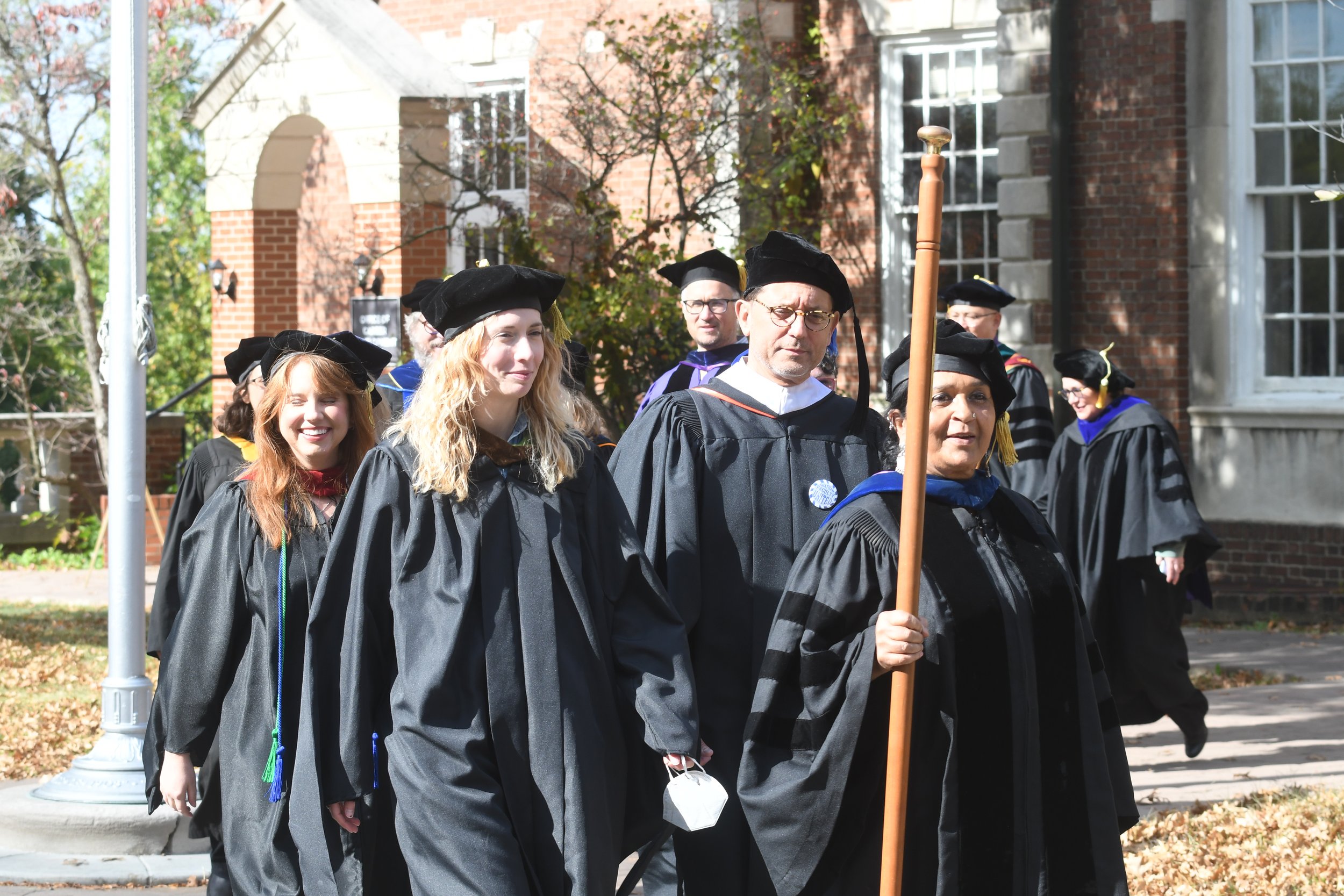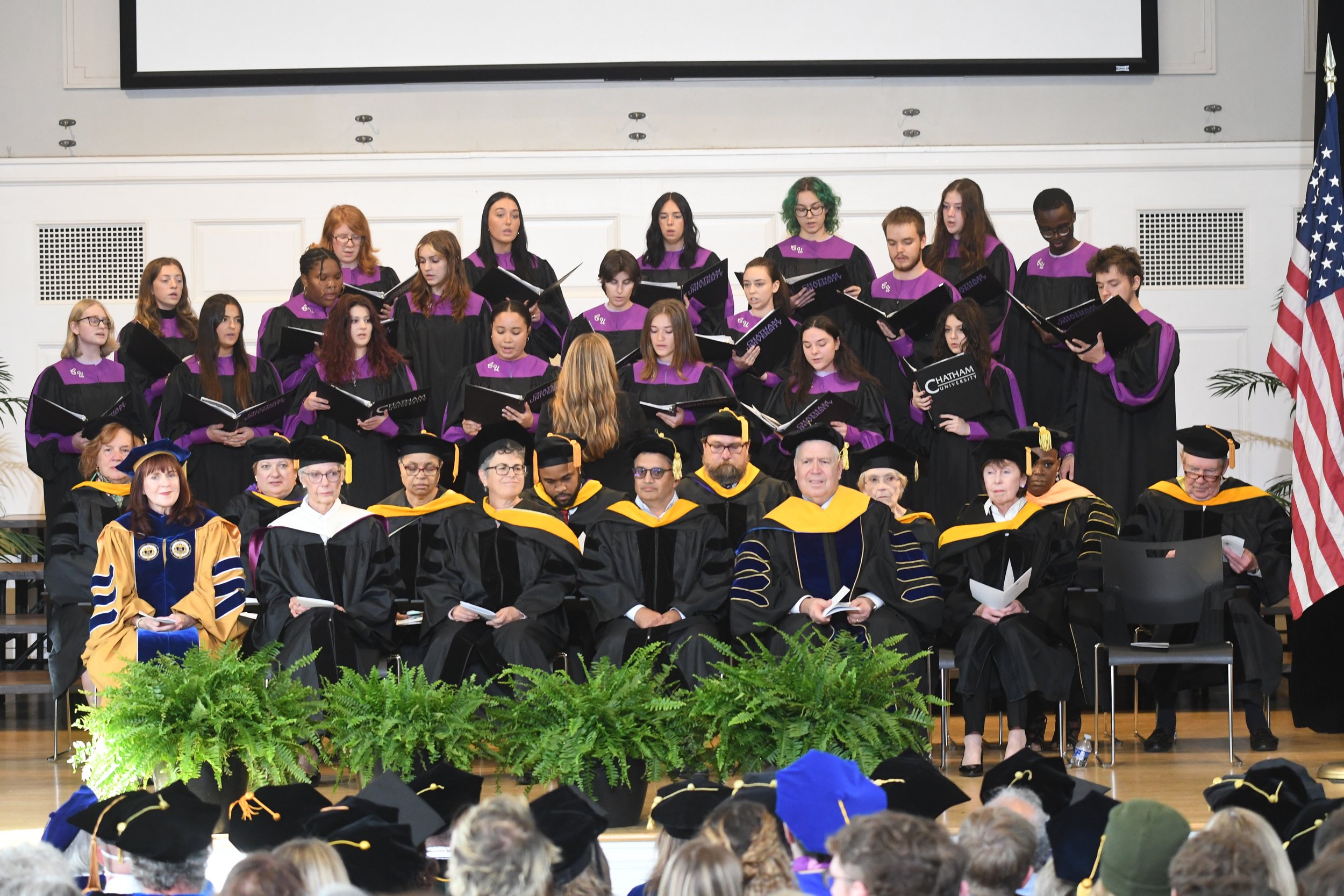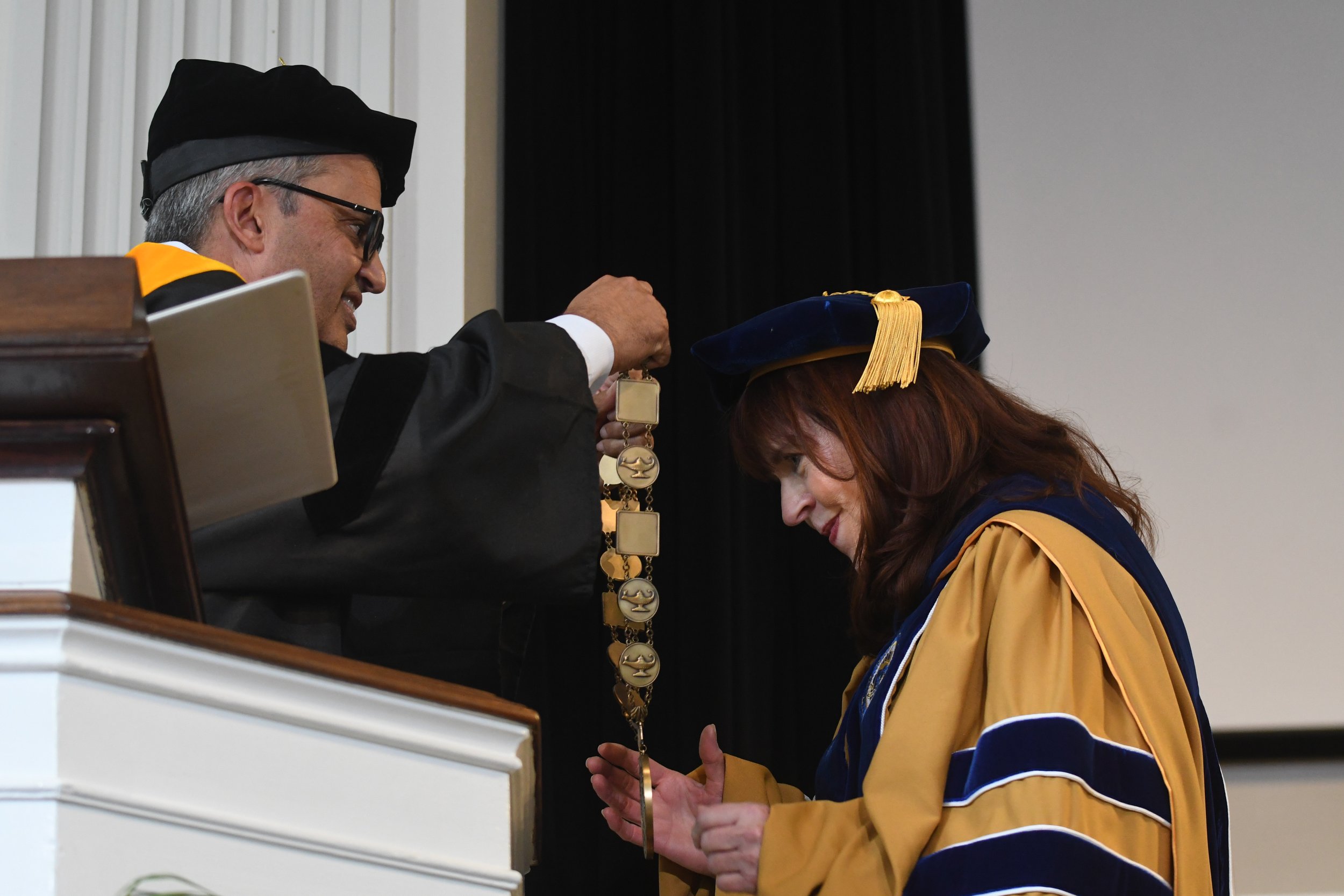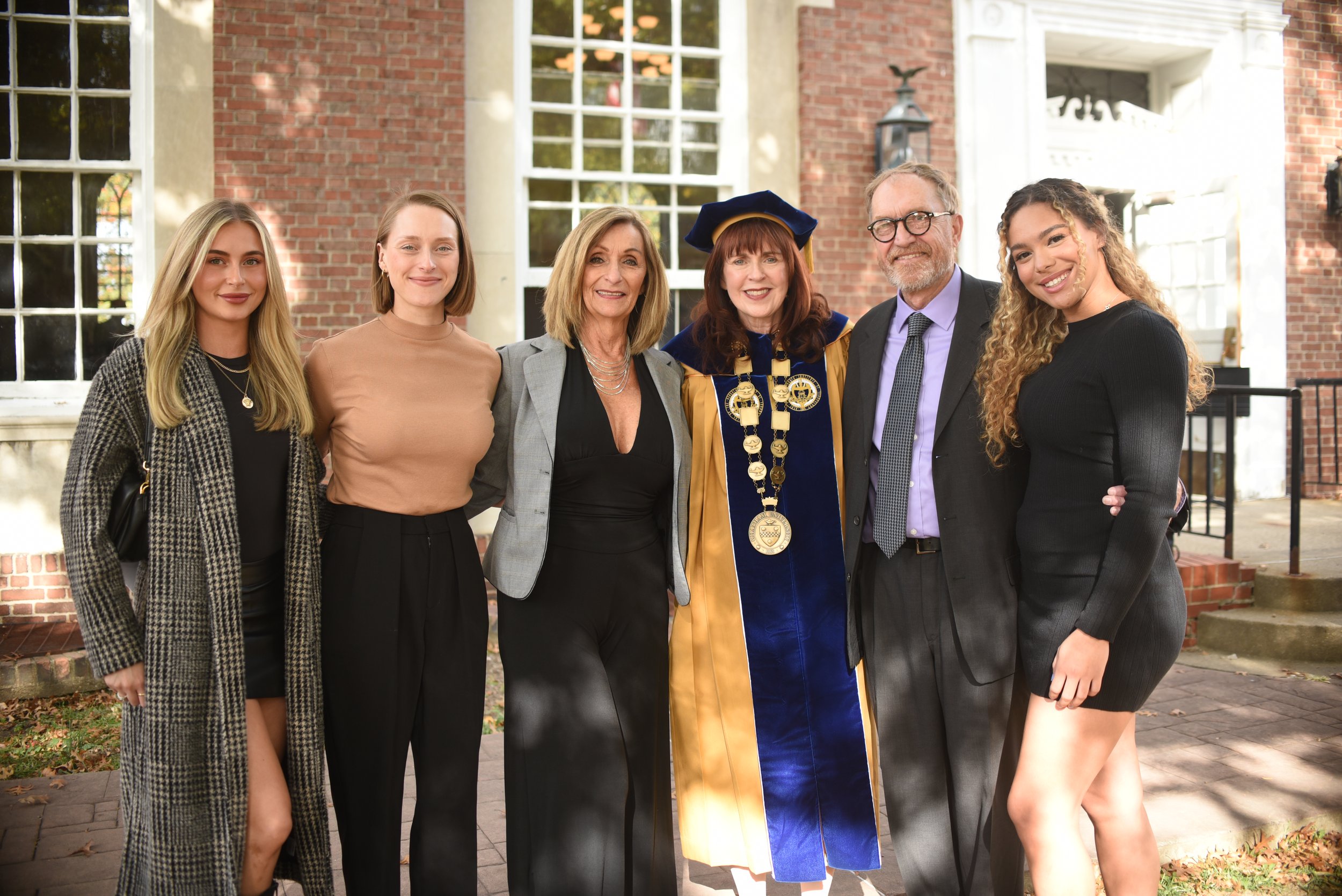An Interview with Dr. Rhonda Phillips, 20th President of Chatham
This article was originally published in the Winter 2023-2024 issue of the Chatham Recorder Alumni Magazine. To view more digital Recorder stories, click here.
Dr. Rhonda Phillips
Dr. Rhonda Phillips faced a critical choice when she signed on to become Chatham’s 20th president. After being made aware of a significant budget deficit, Phillips—with more than 30 years of experience as an academic administrator, author, and scholar—was given a chance to walk away. Instead, she embraced the challenge, putting her expertise to work in facing the problem head-on, making tough but necessary decisions to ensure Chatham’s legacy for generations to come.
As part of a new strategic planning process, she introduced RENEW 2025, a two-year action plan for Chatham University focusing on improving fiscal and operational sustainability, furthering academic excellence, and enhancing the campus experience.
In an interview shortly after her presidential investiture in October 2023, President Phillips shared her lifelong love of learning, her passion for the natural world, and her ideas and hopes for Chatham.
Congratulations on your investiture! How was the experience for you?
The investiture was a very special day. It almost felt magical because the weather was perfect. I had family and friends there. We also had students, faculty, staff, board members, alumni, and partners from the community, and it felt incredibly special. And though it’s an ancient ceremony, it’s also a ritual of “this is a time and space where we all come together right now,” which will never be replicated. We needed it to reaffirm our commitments, celebrate Chatham, and move forward.
You started your presidency at a challenging moment in Chatham’s history. What made you confident that we could pull through this moment together?
First, there were a multitude of things that attracted me to Chatham when I started learning more. Of course, the sustainability piece with Rachel Carson drew me instantly. Then, we have a campus that’s an arboretum at Shadyside, a beautiful farm and resource of Eden Hall Campus, and a health sciences space at Eastside. These are things small to mid-sized liberal arts institutions usually don’t have. We’ve got these, plus we’ve got a remarkable location in Pittsburgh! We’ve got all the pieces here, and what’s more, I could tell before I even got here that we’ve got a very committed alumni base and students who are curious and want to learn and grow. Students, alums, and staff are all attracted here because this place’s ethos is different.
“Ultimately, I want [Chatham] to be known as the university of choice for those who want to improve the health and well-being of people and our planet. ”
When it became known that there would be a fiscal deficit, to my mind, it wasn’t so big that it would prevent us from moving forward and doing things we wanted to do. Of course, there are ways to address it, and we’ve made a lot of progress quickly. It was also important to me to know if Chatham thought they could get through this for me to want to be part of the institution. That was expressed clearly by the board members, leadership team, and the alums I’ve talked to. The sentiment was that, of course, we can do this. This is not insurmountable. It is just something that needs to be managed.
I know the situation discourages some but look at what we’ve got here. Other places can only hope to have the things we already have. And so, we build on that. We make it stronger. Of course, you must rethink your strategies of what you will do and delay some of what you would have initially wanted to do. Every organization can benefit from improvements in processes and operations, so we’ve centered on that for the first part of my presidency.
As of October, we’ve reduced the deficit by a little over half, way ahead of the two-year schedule set by the Board. We are putting in operational procedures and efficiencies with software. We are looking at things like how we purchase and do procurement and what some would consider routine operations. We are looking at these, saying, “Is this the best way to do that?” and then making positive changes. The bulk of our fiscal efficiencies have come from improving processes and how we operate. So that’s helped tremendously, and we’re seeing that we’re getting some of those positive results from all of this.
You recently launched RENEW 2025, a two-year action plan for Chatham University, as part of a new strategic planning process. What are a few early highlights of the plan, and what do you hope to accomplish at the end of the plan?
Renew 2025
Under the leadership of new President Dr. Rhonda Phillips, Chatham University is undertaking an ambitious two-year action plan called Renew 2025. This action plan is focused on helping Chatham adapt and change to unprecedented undergraduate growth since going all-gender a decade ago while staying nimble and innovative.
The Renew action plan is built around the following three core pillars:
Furthering Academic Excellence and Student Success
Review, reset, and optimize academic programs and curriculum.
Launch programs built on mission, workforce needs, and market potential.
Further educational access and affordability for students.
Enhancing the Campus Experience
Expand spaces, technology, and programming for students and academics.
Build a plan for funding long-term maintenance.
Undertake renovations and restoration of historic buildings and arboretum.
Improving Fiscal and Operational Sustainability
Align costs and revenue.
Invest in new financial systems and analytics.
Partner for procurement and other University services.
Because we came into the situation of dealing immediately with a fiscal issue, we rethought what we would do with longer-term strategic planning. Typically, a strategic plan would be a five- or 10-year plan. For Chatham, there is an immediate need to improve things as soon as possible, which is why we’re doing a two-year plan. It covers this current fiscal year and the next fiscal year through 2025. We listened to people, talked to peers, observed, reviewed data, and became immersed in the day-to-day. The process resulted in three focus areas to guide our efforts.
The first, of course, is furthering academic excellence and ensuring that we’re evaluating our programs, knowing where we’re strong and where there may be some things to mitigate and create more robust ones. Or do we have programs that need some refreshing or updating? Do we have areas we need to do differently to ensure we meet student needs and evolve as an institution of higher education?
The second is enhancing the campus experience. Shadyside is a historic treasure of a campus, but many maintenance issues come with taking care of buildings over 100 years old that need attention. We want to activate our alums, community partners, foundations, and others to invest in these properties to restore them to the shining jewels that they are. This will also enhance the experience for students, staff, faculty, and all our community members who come to our campus. We are launching this focus on Shadyside because that’s where we have most of our historic properties. We’re looking at priorities and what needs to be done, what is happening with the buildings, and where we need to make immediate improvements around safety and health. We need to do more aesthetic improvements that may come over time and ensure we’re not letting these gorgeous structures degrade in any way because you can’t replicate this kind of building anymore. Honestly, you just can’t.
Finally, the third thing we’ve already discussed is improving fiscal and operational efficiencies. I have multiple goals for Chatham, but this one is critical to ensuring that we’re never in the situation we were in when I came here and that we have safeguards, controls, and best-in-class processes in place.
What are your ideas for engaging alums and harnessing their support for Chatham?
The Cornerstone Giving Initiative for Shadyside Campus will be our big push right now because this is so critically important and needed. We also have many other opportunities for alums to engage, such as Chatham Connect. Plus, we’re going to be creating more opportunities for more. I’ve been talking with others about having more advisory councils and advisors speak with administrators, students, faculty, and our staff. And because many of our alums are pretty notable through the accomplishments they’ve had in their careers, hopefully, they’re willing to give back some of their guidance and advice in helping us move forward even more. I sincerely hope all alums get involved with their alma mater and connect with our current students, staff, and faculty. We welcome that.
Your alma mater is the place where you had a transformation in your own life and undertook your journey of learning. Higher education is different. It’s not like you pay for a service, you get your service, you walk away. This is part of your life journey in a meaningful way, and it will always be part of you, no matter how many years have passed from when you were here until your current place in life. We always carry some of that with us and, hopefully, also give back to our current students so they can have that kind of experience, too. That’s why we’re in this industry. That’s why our staff, faculty, and all those involved in this community are part of it. We are all engaged because Chatham is different and special.
You’ve got a distillery on your family property; you were on HGTV; you’ve written over 30 textbooks; you were into aviation at one point. Where does your spirit of curiosity come from?
I’ve always loved learning. I think my family instilled that in me at an early age. I hope I’ve helped my students, colleagues, kids, family, and peers also embrace a love of learning because we’re curious beings. Humans are curious, and we need to know things and see what we can do. I’ve always been extremely curious, perhaps too much sometimes, but that’s OK. I’d rather know more about something than not enough. If we stop learning, we stop growing, and that’s not good for anyone.
When I was a little thing, I would try to get up from my nap and go outside and explore. I would use the broom handle to unlatch the door so I could leave. I was wearing my brother’s big shoes because I liked his shoes. One day, my mother found me far from the house looking for turtles because I had in my mind that I just needed to look for turtles that day.
I’ve taken that sense of wanting to know things into the current time and hopefully inspire or help others recognize that we need to be inquiring beings. We need to explore and use inquiry to find out what’s happening.
What would you like Chatham to be most known for in 10 years?
I’d like to see Chatham become a place where people can feel like they can come for help in solving some of the issues that we face in society, the economy, and the natural world. I want to be known for being on the cutting edge of helping think through these issues, just like Rachel Carson did a long time ago.
I want Chatham to be known as a place for innovation that thinks through these issues and demonstrates them in our teaching, engagement, and research. It doesn’t only have to be the vast research institutions that provide a lot of answers to society’s significant challenges. Ultimately, I want us to be known as the university of choice for those who want to help improve the health and well-being of people and our planet. We are already well on our way to this with our reputation for excellence in health & sustainability, the arts & sciences, and leadership & gender equity.
Rhonda Phillips was president of Chatham from April 2023 to June 2025.


